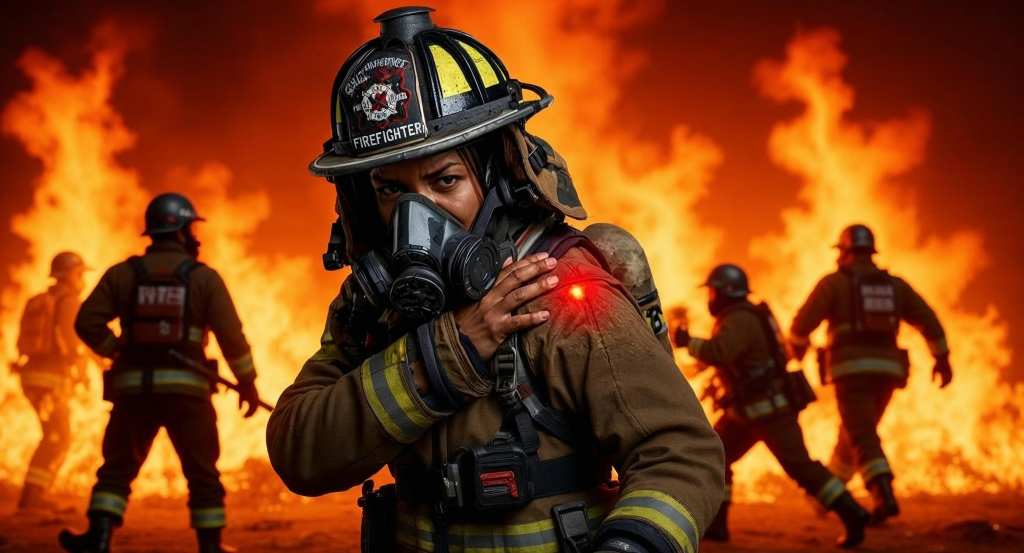
What is the problem?
Firefighting is a physically intense job. Firefighters often lift heavy equipment, move in awkward spaces, and work in dangerous situations which increases the risk of shoulder injuries. These shoulder injuries can reduce their ability to work and cost the system a lot of money. Yet, little is known about how firefighters themselves handle these shoulder injuries or what kind of healthcare and support they truly need.
How did the team study the problem?
We interviewed 14 firefighters who had experienced shoulder injuries while on duty across North America, 9 men and 5 women, with an average age of 47 years old. We used one-on-one Zoom interviews to understand their experiences, then analyzed the responses to identify common themes.
What did the team find?
Firefighters manage shoulder injuries using various strategies including getting early and accurate diagnosis from medical experts; starting physiotherapy and other medical treatment early; adjusting their workouts routines and daily tasks to minimize pain and discomfort; relying on support from family, peers, and organization. Firefighters also mentioned some changes they wanted in addition to the above strategies: exercise programs specific to their duties; regular health checks and injury prevention programs built into their workplace.
How can this research be used?
Fire departments can use these findings to create more targeted and effective training, injury prevention, and recovery programs. Healthcare providers can better tailor treatments that meet the realities of firefighting work. Policymakers can also use these insights to better shape support systems for the occupational health and well-being of firefighters.
Cautions
This study focused mostly on male, Caucasian firefighters in North America, so findings might not apply to all groups. Also, firefighters self-reported their experiences, which could introduce recall bias. More diverse and long-term studies are needed to build on these findings before making wide-scale changes.
Reference: Osifeso T, MacDermid JC, Berinyuy D, Parikh P, Faber K. Perspectives of North American Firefighters on Navigating Interventions and Healthcare Choices for Work-Related Shoulder Disorders. *Discover Public Health.* 2025;22:342. https://doi.org/10.1186/s12982-025-00739-8
Funding Sources: This study was funded by the Canadian Institutes of Health Research (CIHR) and supported by the Centre of Research Expertise for the Prevention of Musculoskeletal Disorders (CRE-MSD).
Acknowledgments: This summary was developed with AI language and image support and reviewed by content experts and firefighter collaborators.
